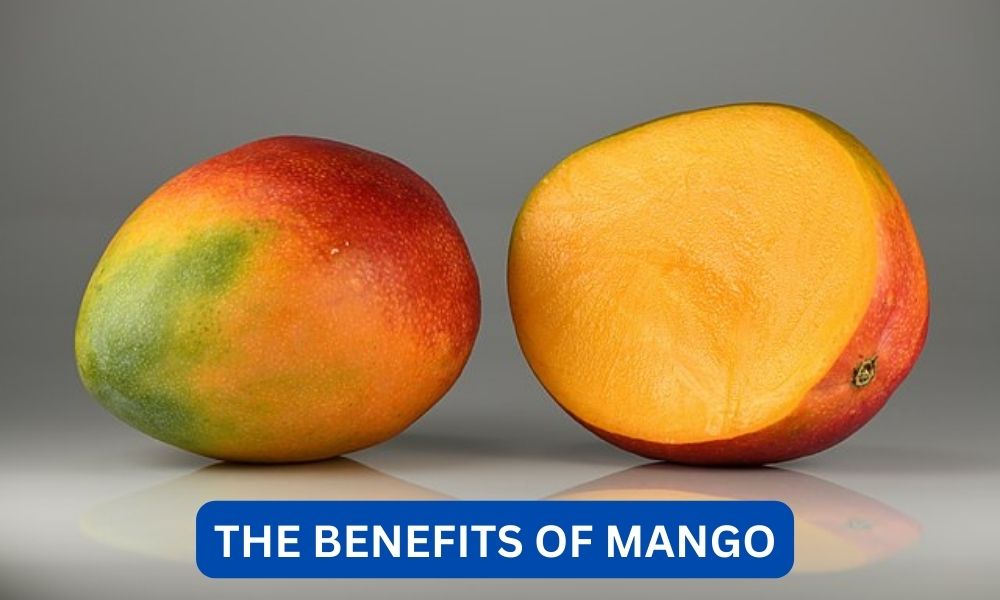Mangoes are one of the most beloved fruits in the world, and for good reason. Not only are they delicious, but they also offer a wide range of health benefits. This tropical fruit is native to South Asia but is now grown in many parts of the world, including India, China, and Mexico. In this article, we will delve into the various benefits of mango and why you should consider adding it to your diet.
Contents
1. Rich in Nutrients
Mangoes are packed with essential nutrients that are vital for maintaining good health. One cup (165 grams) of sliced mango contains:
- Calories: 99
- Protein: 1.4 grams
- Carbohydrates: 24.7 grams
- Fat: 0.6 grams
- Fiber: 2.6 grams
- Vitamin C: 67% of the RDI (Recommended Daily Intake)
- Vitamin A: 10% of the RDI
- Vitamin B6: 11% of the RDI
- Potassium: 6% of the RDI
- Copper: 20% of the RDI
- Manganese: 4% of the RDI
Additionally, mangoes also contain small amounts of other vitamins and minerals, such as calcium, iron, and zinc. This nutrient-dense fruit is a great way to boost your intake of essential vitamins and minerals, especially if you have a busy lifestyle and struggle to eat a balanced diet.
Read:What are the benefits of pilates?2. High in Antioxidants
Mangoes are a rich source of antioxidants, which are compounds that help protect the body against free radicals. Free radicals are unstable molecules that can cause damage to cells and contribute to various chronic diseases, such as cancer and heart disease.
The antioxidants in mangoes, such as quercetin, isoquercetin, astragalin, fisetin, and gallic acid, help neutralize free radicals and prevent oxidative stress. This, in turn, can help reduce the risk of chronic diseases and promote overall health.
3. May Help Lower Cholesterol Levels
High cholesterol levels are a major risk factor for heart disease. Fortunately, mangoes may help lower cholesterol levels and reduce the risk of heart disease. A study published in the Journal of Nutrition and Metabolism found that regular consumption of mangoes can help lower LDL (bad) cholesterol levels in overweight individuals.
Another study conducted on animals showed that mango extract can reduce total cholesterol, triglycerides, and LDL cholesterol levels while increasing HDL (good) cholesterol levels. This is due to the high levels of fiber, pectin, and vitamin C in mangoes, which are known to have cholesterol-lowering effects.
4. May Improve Digestive Health
Mangoes are a great source of fiber, with one cup containing 2.6 grams. Fiber is essential for maintaining a healthy digestive system and preventing constipation. It also helps feed the good bacteria in your gut, promoting a healthy balance of gut flora.
Read:What are the health benefits of coffee?Moreover, mangoes contain enzymes that aid in the breakdown and digestion of proteins, making it easier for the body to absorb nutrients. This can be especially beneficial for individuals with digestive issues, such as irritable bowel syndrome (IBS).
5. May Boost Immunity
Mangoes are rich in vitamin C, which is essential for a healthy immune system. Vitamin C helps stimulate the production of white blood cells, which are responsible for fighting off infections and diseases. It also acts as an antioxidant, protecting the body against harmful pathogens.
One study found that mangoes can help boost the immune system in older adults, who are more susceptible to infections and illnesses. The high levels of vitamin C in mangoes can also help reduce the severity and duration of the common cold.
6. May Help Regulate Blood Sugar Levels
Mangoes have a low glycemic index (GI) of 51, which means they are unlikely to cause a spike in blood sugar levels. This makes them a suitable fruit for individuals with diabetes or those trying to manage their blood sugar levels.
Moreover, mangoes contain compounds that have been shown to have a positive effect on blood sugar levels. A study published in the journal Nutrition and Metabolic Insights found that mango extract can help regulate blood sugar levels in individuals with type 2 diabetes.
Read:What are the benefits of breastfeeding?7. May Have Anti-Cancer Properties
Several studies have shown that mangoes may have anti-cancer properties. The high levels of antioxidants in mangoes can help protect against cellular damage and reduce the risk of cancer.
One study found that mango extract can inhibit the growth of breast cancer cells. Another study showed that mango polyphenols can help suppress the growth of colon cancer cells. However, more research is needed to fully understand the potential anti-cancer effects of mangoes.
8. May Improve Skin and Hair Health
Mangoes are not only beneficial for your internal health but also for your skin and hair. The high levels of vitamin C in mangoes can help promote collagen production, which is essential for maintaining healthy and youthful-looking skin.
Moreover, mangoes contain beta-carotene, which is converted into vitamin A in the body. Vitamin A is essential for maintaining healthy skin and hair. It also helps protect against UV damage and promotes hair growth.
9. Versatile and Delicious
Aside from all the health benefits, mangoes are also incredibly versatile and delicious. They can be eaten on their own, added to smoothies, salads, or used in various dishes, such as curries and chutneys. The possibilities are endless, making it easy to incorporate mangoes into your diet.
Conclusion:
Mangoes are not only a delicious and versatile fruit but also offer a wide range of health benefits. They are rich in essential nutrients, antioxidants, and fiber, making them a valuable addition to any diet. From improving digestive health to boosting immunity and potentially reducing the risk of chronic diseases, mangoes are a superfood that should not be overlooked. So, next time you’re craving something sweet, reach for a juicy and nutritious mango instead.









